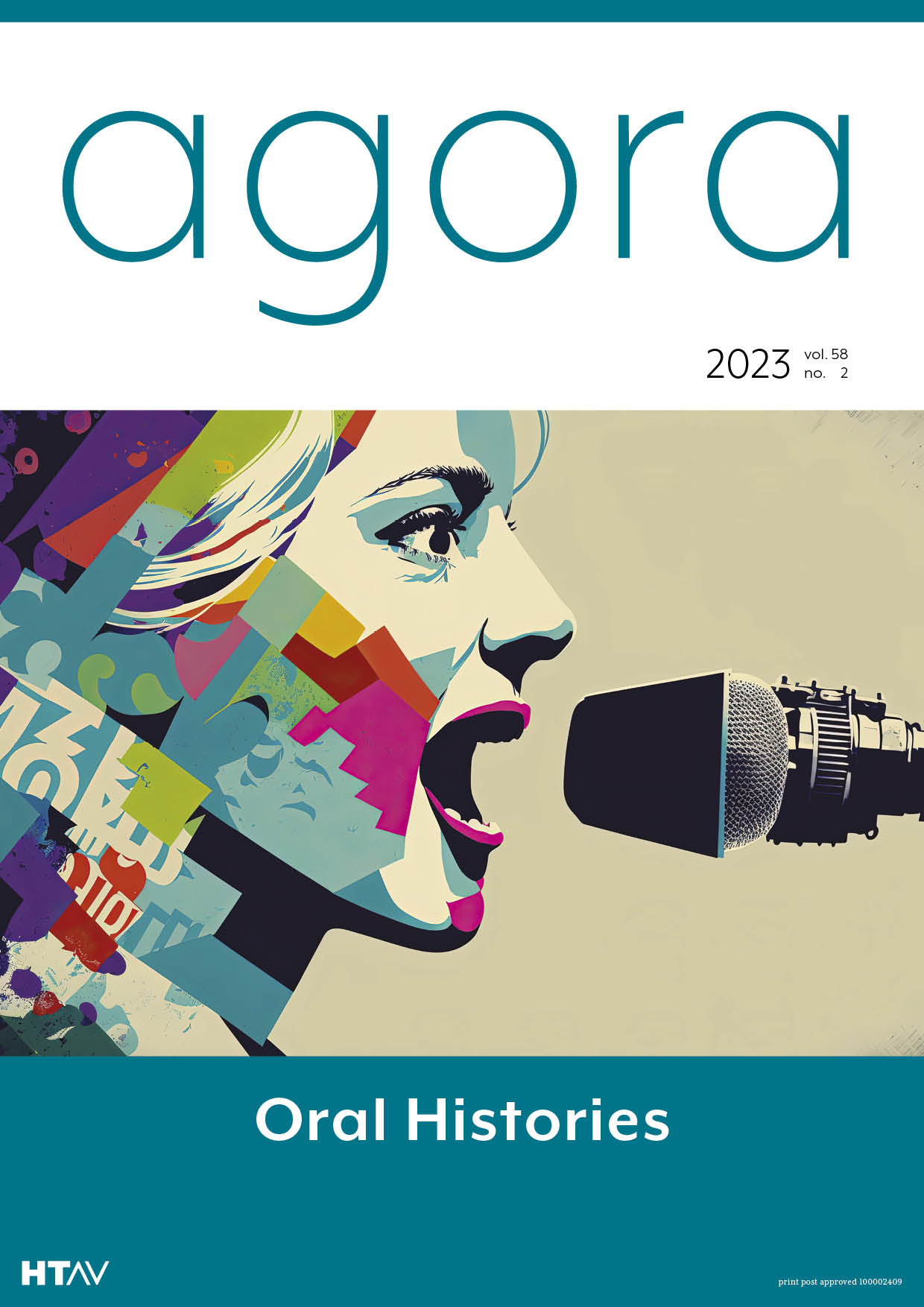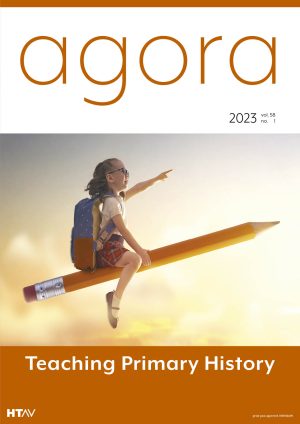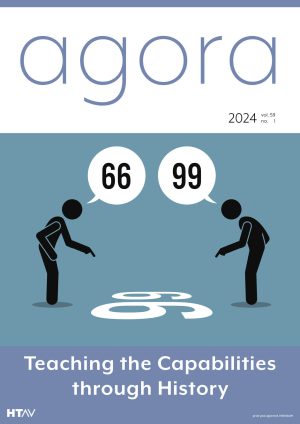Contents
Reflection | Ashley Keith Pratt
Editorial | Guy Nolch
SUNGRAPHO | Research and analysis
What History Teachers Need to Know about ChatGPT | Ian Lyell, Mentone Girls’ Grammar School
Students are already using ChatGPT to write their History assignments. While this can help students who aren’t confident writers, it also requires the development of critical thinking skills to identify fabrications in content and sources.
THEMA | Reflections on the theme
Evidence that the Oral Stories of First Nations Australians May Be Thousands of Years Old | Patrick Nunn, University of the Sunshine Coast, and Nick Reid, University of New England
Oral accounts across Australia tell the story of ocean levels rising at the end of the last glacial period, and these can be cross-checked against reconstructions of the coastline receding and land bridges disappearing.
A First Nations Perspective of Written vs Oral History | Dr Aleryk Fricker, Nikeri Institute, Deakin University
Australia has the oldest oral histories in the world, but notions that written documents are more reliable are outdated and diminish opportunities to engage students in History.
How Folklore Informs History | David Waldron, Federation University
Ghost stories are a form of oral folklore that reveal an evolving social memory of historical ordeals that remain unreconciled in the community.
Understanding the Complexities of Oral Histories in the Classroom | Bronwyn Cook, Dandenong High School and Monash University
Oral history’s place in narrative construction can be fraught with difficulties including bias, shifts in memory construction, and the effects of trauma.
Mutual Language Barriers in the Oral Histories of Immigrants | Dr Christopher Cheng, Oral history interviewer, National Library of Australia
Conducting oral history interviews in community languages, such as Chinese, is an underutilised method of recording the diverse experiences of so many people living in Australia.
Survivor Testimony in Holocaust Education | Simon Holloway, Melbourne Holocaust Museum
Survivor testimonies present the Holocaust as a story of individuals rather than just numbers.
Oral Testimonies Fact-Check the Official Narrative of the British Nuclear Tests in Australia | Sue Rabbitt Roff, University of Dundee
There are important discrepancies between oral testimonies transcribed from a Royal Commission into the British nuclear tests and the documentary evidence in Australian and UK national archives.
The Importance of Gaining Trust When Conducting an Oral History | Sandra Gorter, Historian
The question of who saved New Zealand’s construction industry was answered by an oral historian who had earned the trust of industry employees with conflicting accounts.
PRAKTIKOS | Teaching Ideas
Interviewing Tips from a Journalist | Linda Hunt, University of Tasmania
The principles of journalism can tease out some unexpected details that turn a promising interview into an insightful oral history record.
Creating Oral Historians in the Secondary Classroom | Phillip O’Brien, McKinnon Secondary College
A Year 9 elective focusing on oral history has impressed on students the importance of capturing community stories while developing the skills required to ‘do’ history.
Oral History with Australian War Veterans on the Web | John Moremon, Massey University, New Zealand
A number of online resources enable students to learn about war by hearing recordings made by those who experienced it.
Using Oral History Sources to Explore Anti-Vietnam War Experiences | Alexandra Pierce, Australian Living Peace Museum
Oral interviews available online from the Australian Living Peace Museum give an enduring voice to Australian women who proested against the Vietnam War.
Exploring the National Film and Sound Archive’s Oral History Collection | Alyssa Coursey, National Film and Sound Archive of Australia
From our earliest recordings in the 1890s to the latest games and immersive digital productions, the national audiovisual collection captures ot only our technical and artistic achievements, but also our stories.
Using Oral History to Teach the American Civil Rights Movement | Christopher L. Hart, Yarra Valley Grammar School
Oral histories provide an informative way to hear new voices describe their experiences during the American Civil Rights Movement.
Viking Sagas as Oral Histories | Diana Millar, Author and former History teacher
Oral Viking sagas are historical records of the adventurous life of the Vikings, whther it was attacking other countries or discovering them.
Kritikos | Reviews




